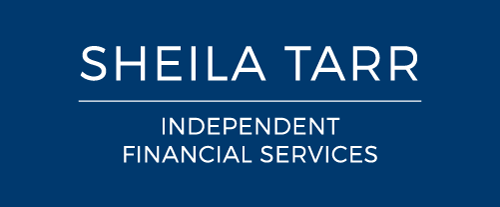Taking Care of Your Loved Ones
Estate planning is essentially a strategic approach to managing your finances for when you’re no longer around.
It involves ensuring your assets are distributed according to your wishes, while also minimising the amount of money you might have to pay in taxes.
This is typically achieved through a will but there are other tools to factor into the equation such as trusts, insurance, donations and investments which can help. Ultimately, Estate Planning is all about securing your financial legacy even after you’re gone.

inheritance tax
What is inheritance tax?
Inheritance tax is a tax on your wealth that is paid on your death, however it can also apply to some gifts that are made during your lifetime.
Whilst inheritance tax (IHT) receipts had been steadily increasing year-on-year since 2009. However, HMRC reported that in 2019/20 they saw the first drop in revenue in 10 years. According to HMRC, this fall is due to the introduction of the Residence Nil Rate Band (RNRB) in 2017/18 which is now taking effect. The RNRB is discussed in further detail later in this article.
This total could still have been lower if more families had a plan in place. By not thinking about IHT planning, you are susceptible to a larger Inheritance tax bill, leaving less money behind for your loved ones.
Many people believe that inheritance tax only affects wealthy families, however, rising property prices have meant more of us are paying inheritance tax.
In the words of Benjamin Franklin, – “in this world nothing can be said to be certain, except death and taxes”.
Whilst inheritance tax is a tax on your wealth that is paid on your death (IHT can also apply to some gifts that are made before someone dies), it doesn’t have to be inevitable. Inheritance tax advice can help to reduce your tax liability and an adviser will be able to help you explore your options.
What is the inheritance tax limit?
Everyone has a £325,000 inheritance tax nil-rate band. If you are married or in a civil partnership, you and your spouse have a combined nil-rate band of £650,000.
From April 2017, an additional main residence nil-rate band was introduced. For the 2023/24 tax year, the individual allowance remains at £175,000. To qualify the individual’s main residence must be passed down to a direct lineal descendant.
If a person’s estate value exceeds £2 million, the residence nil-rate band is reduced by £1 for every £2 over £2 million. This means, anyone with an estate valued in excess of £2.35 million will not be able to benefit from this additional main residence allowance.
What is a direct descendant?
A child (including a step-child, adopted or foster child) of the deceased and their lineal descendants (their children’s children and grandchildren) and the spouses/civil partners of direct descendants (including their widow, widower or surviving civil partner).
Is your estate susceptible to IHT?
Here is an illustrative example to help you better understand how Inheritance Tax works.
Example 1
If your individual estate is valued at £950,000, assuming one nil rate band and no residence nil rate bands are available, an individual benefactor would pay an inheritance tax bill of £250,000 in 2023/24.
• £950,000 – the nil-rate band (£325,000) = £625,000.
• £625,000 x 40% = £250,000.
The tax must normally be paid within six months of the end of the month in which the benefactor has died (There are some exceptions such as property, land etc).
Example 2
If your individual estate is valued at £950,000 and you are leaving your family home (valued at £175,000 or more) to a direct descendant, a benefactor with one nil rate band and one residence nil rate band available would pay an inheritance tax bill of £180,000 in 2023/24.
• £950,000 – the nil rate band (£325,000) – the residence nil rate band (£175,000) = £450,000.
• £450,000 x 40% = £180,000
This is a simplified explanation with some situations being far more complicated. We recommend that you speak to an adviser for more details.
WILLS
What is a Will?
In simple terms, a Will is a document that outlines how you want your assets to be distributed and your affairs to be handled after your death.
It’s a legally enforceable document that needs to be written, signed and witnessed. It should name your beneficiaries and give details of how all of your possessions should be distributed. Furthermore, it should outline an executor (the person who will be in charge of distributing your assets).
Should you have any dependent children, your Will can also outline who would care for them if you should pass away while they are in your care. You can set out explicitly who gets what and allow your loved one’s access to your assets without too much difficulty. You can make plans to save money on inheritance tax too, through gifts and charitable donations. In addition, you can use your Will to specify your funeral arrangements.

What happens when someone dies without a Will?
If someone dies without a Will, they are said to have died ‘intestate’. As a result, their assets must be distributed in line with the intestacy rules, whether or not this is what they would have wanted. Remember, what the intestacy rules dictate might not be what you’d choose. Meanwhile, if you have any dependent children, the court will name a guardian. Again, this person might not be who you’d choose to care for your children after your death, which is why it’s so important to create a Will.
Plus, when someone dies without a Will, they might not be taking full advantage of the inheritance tax spousal exemption. The exemption is in place when you pass your estate over to a spouse or civil partner – without making a Will, other relatives might be entitled to some of your assets, meaning that those legacies would not be exempt and should they exceed your nil rate band there could be inheritance tax payable.
What is a beneficiary in a Will?
A Beneficiary is somebody who is chosen by the deceased person – as set out in their Will – to receive an inheritance from their estate. In their Will, the deceased person will state their beneficiaries, and give details such as their home address for ease of contact. It’s the executor’s job to contact the Beneficiaries and notify them of what they are entitled to do, as per the deceased person’s wishes.

GIFTING
Gifting
When you make a gift to another individual this is known as a Potentially Exempt Transfer (PET).
There is no inheritance tax payable at the time of the gift, but it has potential consequences for your estate position for seven years after the gift. After seven years, no inheritance tax will be payable on the gift at all (there are certain circumstances where we need to look back 14 years).
There are a number of gifts to individuals that are totally exempt from inheritance tax:
- Annual Exemption – you can make an annual gift of up to £3,000. If it is not used in a tax year, the balance can be carried forward to the next year but is lost if not used that year.
- Small Gifts – gifts of up to £250 to any person (in any one tax year) are exempt. This cannot be used in conjunction with the annual exemption i.e. you cannot gift £3,250.
- Normal Expenditure – gifts are exempt if they are shown to be normal expenditure, paid out of income and don’t affect your usual standard of living.
- Gifts on Marriage/Civil Partnership – exempt gifts include: £5,000 given to a child, £2,500 given to a grandchild or great-grandchild or £1,000 given to anyone else.
There are a number of other types of gift which are exempt, but those listed are the most commonly used.
CHARITIES
Charities
If you leave something to charity in your will, then it won’t count towards the total taxable value of your estate.
You can also cut the Inheritance Tax rate on the rest of your estate from 40% to 36%, if you leave at least 10% of your ‘net estate’ to a charity.


WHole of life
Whole of Life
You could consider taking out a Whole of Life insurance policy to address an inheritance tax issue.
A whole of life policy, with a sum assured to match the expected tax charge on the estate is placed in trust to the beneficiaries of the estate. Upon death, the insurance policy will be paid out, providing funds for the beneficiaries to pay the inheritance tax charge.
Not all whole of life policies are the same and with most financial products it is best to take advice on what best suits your circumstances.
TRUSTS
Trusts Explained
Trusts are becoming a mainstream planning tool to help protect wealth but can be difficult to understand.
There are many reasons why you might use a trust and lots of types to choose from. Here we look at what a trust is, why you might create one and explain the different types to consider.

Why create a Trust?
Trusts are created for a few reasons. Tax planning is a common driver by facilitating the gifting of an asset, other reasons include control, protection and flexibility.
Control
When transferring assets into Trust, the trust deed (or will) can set out who will benefit and in what proportion. In addition, if it is a lifetime trust, it is possible for a settlor to retain some control over the trust assets by appointing himself as a trustee which is not possible with an outright gift.
Protection
If you feel that an outright gift may not be spent in a sensible way, it is possible to hold money in a trust for a specified purpose, for example university fees. This enables the gift to be made for the benefit of the person without them having the ability to spend the money on something more frivolous.
Flexibility
Depending on the terms of the Trust, it may be possible to alter the beneficiaries depending on the need.
Note: For a trust to be effective for many of the tax advantages, it is important to give up any right to the asset transferred.
What is a Trust?
A trust is the formal transfer of assets to a small group of people known as Trustees to hold and safeguard for the benefit of others. There are three main parties involved within a trust:
- a settlor, the person who establishes the trust,
- a trustee, the person entrusted to hold the assets for the beneficiaries
- and the beneficiary, the person entitled to benefit from the trust.
Who is a Trustee?
A trustee is a person who is entrusted to hold the assets for the beneficiaries. For practical reasons, there is usually more than one. They are the legal owner of assets and are appointed to administer the Trust for the benefit of third parties – known as beneficiaries.
Who can be a Trustee?
Anyone over the age of 18 can be a Trustee providing they have mental capacity. A Trustee has a statutory duty of care towards beneficiaries and must exercise reasonable care and skill. A trustee could be; the person making the gift – the settlor, a professional e.g. solicitor, family members or close family friends.
A professional such as a solicitor or accountant acting as a trustee will have a greater duty of care by virtue of their enhanced knowledge and expertise. It is unusual for a trustee to act alone due to complications that can arise should the appointed trustee become incapacitated or die. More commonly two or three Trustees will act together.
Types of Trust
There are many different types of trust. They can be used in a number of different ways and have both advantages and disadvantages.
Benefits of a Trust
The main benefits are centred around a mixture of control, protection and flexibility. Inheritance tax planning is also a common benefit of using a trust, but it’s important to note that an outright gift to an individual would achieve the same inheritance tax advantages.
Drawbacks of using a Trust
It is important to be aware of the additional complexities in respect to Trustees’ duties, including being aware of the taxation applied to different types of Trust. It can be extremely challenging to decide if a Trust is the best solution for you and which Trust is most suitable for your individual requirements.

Investments
Investments
(for inheritance tax planning)
Some investments can come with inheritance tax benefits. This comes under Business Property Relief which was introduced in 1976 by the UK government as a way of incentivising people to invest in trading businesses.
If you invest in the shares of a trading company, your investment will benefit from 100% relief from inheritance tax providing you hold the shares for at least two years and still hold them when you pass away. The relief only applies to unlisted shares, or shares quoted on junior stock markets like the Alternative Investment Market (AIM).
Not all companies will qualify for Business Property Relief. In order for the relief to apply, a key requirement is that a company must be trading. There are investment vehicles that only invest in qualifying companies and using this option is one of the quickest ways in which to mitigate tax on your estate.
This option is deemed higher risk and as with all solutions mentioned above, we would recommend taking advice.
Book your consultation to get clarity on your financial future.
Contact us for a free consultation. There’s no obligation on your part and, if we think we’re not the best people to help you, we’ll tell you straight away.
About
Copyright © 2023 Sheila Tarr IFS. All rights reserved.
About
Copyright © 2023 Sheila Tarr IFS. All rights reserved.

